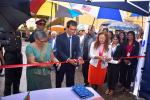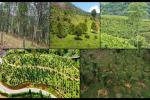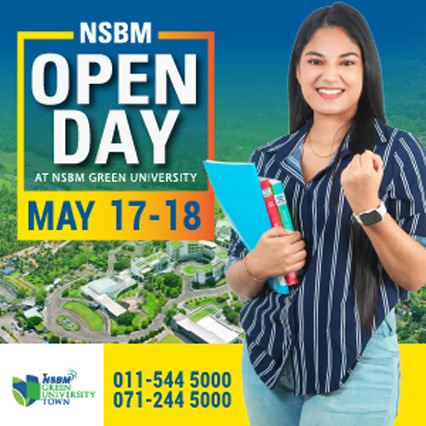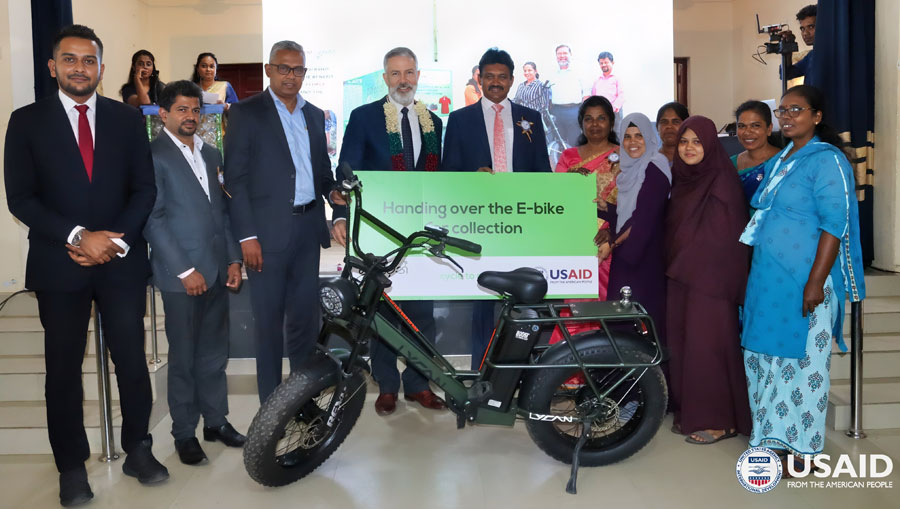The event, which celebrated Sri Lanka's first women-led plastic recyclable collection network and material recovery facility (MRF), featured the handover of e-bikes for plastic waste collection.
Funded by Gunadamin Elephant House, these e-bikes mark a significant step forward in enhancing waste management efficiency and reducing environmental impact.
Speaking at the event, Mr. Daminda Gamlath, President, Consumer Foods Sector John Keells Holdings PLC (JKH) said,
“This e-bike represents our commitment to innovative solutions in environmental stewardship and community empowerment.
We believe these initiatives will sustainably increase plastic collection and affirm our commitment to ESG goals, as exemplified by our partnership with Kaviya Self Development Women’s Centre."
The half-day event saw the attendance of dignitaries to support these women's achievements, including Douglas E. Sonnek, Deputy Chief of Mission at the U.S. Embassy; the Governor of the Eastern Province, Hon. Senthil Thondaman; and other senior government officials.
A plastic collection drive and a street drama performance with the theme of “transforming waste into wealth” took place before the ceremony.
Douglas E. Sonnek, Deputy Chief of Mission at the U.S. Embassy, highlighted the broader impact of the initiative, stating,
“U.S. assistance to increase income generation opportunities for Sri Lankan women strengthens prospects for economic growth and benefits families, communities, and the country.
The United States is partnering to provide equal economic opportunities to unleash women’s full potential, because women’s economic security and inclusion are key to breaking the cycle of poverty.”
The Governor of the Eastern Province, Hon. Senthil Thondaman, echoed these sentiments, expressing appreciation for the organizations involved and applauding the women in Batticaloa for their efforts.
His support underscores the project's significance as a powerful example of community-led efforts driving significant environmental and social change.
Active across five coastal provinces, these plastic waste collection networks have significantly improved the economic status of rural women.
Demonstrating a circular economic model, this activity emphasizes the efficient and sustainable use of resources, recovery, and regeneration.
Supported by Gunadamin Elephant House, USAID, and Viridis, the initiative trains women to identify and collect recyclable waste, including plastics, and incorporate them into the recycling chain.
It has created approximately 200 income generation opportunities and increased the household incomes of women waste collectors.
In a testament to the project's impact, Rohini Dharshan, a woman waste collector from Batticaloa supported by the Kaviya Self-Development Women’s Center, which played a pivotal role in encouraging local women to join this initiative said, "This project turned trash into an unexpected source of income for me. I am now not just tidying up the environment, I am also earning by doing it."

























